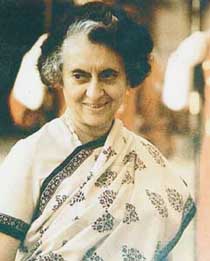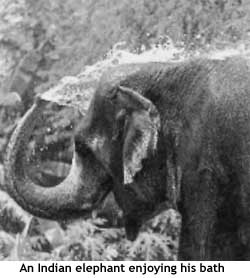



![]()
| Hello Children,
We are publishing some articles sent by some of you on nature, and how to protect trees. Many of us take the beauty of nature and its benefits for granted. Most people cut down trees and destroy our beautiful rain forests. Although you maynot be able to prevent these selfish people from destroying the forests you can do something to help, and that is by growing trees in your garden. If you don't have a garden then help your friends to grow plants in their own gardens. The destruction of the forests is a serious problem which many people in our country fail to take note of. Until next week, Aunty Sunshine |
My favourite teacher is my English teacher. Her name is Asiri Nuvangi Sammanani Payagala. She taught me English in Grade V. She lives at Maharagama. She is a very good teacher and a good friend also. Our teacher Asiri wants all of us to study well. She's very pretty and talks to us a lot. She tells us to be good citizens of Sri Lanka. She loves me very much and I love her too. Although I like lots of people my favourite person is my teacher Asiri.
In a corner of the living room
You sit looking at me
You are a bit proud
Since I need you indeed
My head has become confused
With English, Maths and Science
You simply invite me
for a little fun and games
Let's laugh, and sing and dance
And walk through the valleys
Till my mother peeps into the room
And threatens me to study.
She was born on November 19, 1917 at "Ananda Bhawan" in India. Her name was Indira Priyadharshani Nehru. Her father was the first Prime Minister of Independent India Sri Jawaharlal Nehru. Srimathi Kamala Nehru was her mother.
When her grandfather Sri Mothilal Nehru and her father Sri Jawaharlal
Nehru were in prison as political prisoners, she could  see
them only once a month but she learnt from both of them to fight courageously
for the freedom of the nation and save the country from foreign rulers.
see
them only once a month but she learnt from both of them to fight courageously
for the freedom of the nation and save the country from foreign rulers.
She attended St. Sisiliya School for her studies in 1924 and later she continued her studies at Poonai National School. She studied singing and dancing at Shanthi Nikethan under Maha Kavi Rabindranath Tagore.
She got married to Feroze Gandhi on March 26, 1942 and she had two sons, Sanjay and Rajiv. She was honoured as the world's best and courageous mother by the USA in 1953. In 1959 she was offered the Presidentship of the Indian National Congress.
After the death of her father, Indira became the Prime Minister of India in 1966.
A few days before she was shot dead, she stated that, "I am prepared to sacrifice every drop of blood in my body for my nation and the people. I'll be satisfied, if I can die for the nation.
The village people have lived in harmony with the jungle for hundreds of years. They make use of it for food, shelter and clothing. They have plenty of space for hunting and farming without disturbing the other jungle inhabitants.
But the forests are being disturbed by people in the cities. Huge numbers of trees are cut down and the timber is used for making paper and other goods. Now that most of the northern forests have been felled the great trees of the rain forests are being cut down.
Now the people bring in bulldozers and tractors which can pull down trees with great speed. In order to bring these machines to the rain forests, roads are built and these cause a great deal of damage. Every year huge areas of forests are destroyed.
There are many other reasons why the forests are cut down. People want more farmland to grow food for themselves and their livestock. Land may be used to grow important crops such as rubber and cocoa, which bring much needed money. Many tourists visit these areas which means they need proper roads and hotels.
Once a large area of trees has been cleared, it will not grow again for many years. When the cover of the trees has gone, the soil quickly becomes useless. The heavy rains wash out and cause erosion.
The destruction of rain forests affects animals as badly as it does plants. Already, many species have become extinct, others such as the mountain gorilla and the orangutan are also in danger of extinction.
Because....!
My eyes miss
Your loving face
My ears miss
Your tender voice
Oh! my son
I miss you
Terribly....
And I know
That you'll never come
I am grieving
not because
You are dead
I am grieving
Because you are
My precious child....
They tell now
You are a hero
Because you sacrificed your life!
But to me,
You are always a hero
not because of your
great sacrifice
You are a hero to me
Because.....
You are my precious child!
Trees are very useful to us. They give us food, herbs, fresh air to breathe. They absorb carbon dioxide. They stop the soil erosion. They give us timber, so we can make furniture. We can't live without trees. Trees beautify the world. We can beautify our garden with trees. Trees give shelter to a large number of living creatures.
Today people cut down trees endlessly. A large number of rain forests are being destroyed in the world. Therefore we face continuous droughts. The temperature rises and wild animals have no place to live.
We should grow more trees. Those who cut down trees should be severely punished. People should be made aware of the adverse results of cutting down of trees.
Elephants, Rhinoceroses, Tapirs and Wild Boars
are some of the giant type animals you will get in the wilderness. In our
 jungles
we don't have Rhinoceroses and Tapirs roaming freely but you could see
them in our Zoological Gardens in Dehiwela.
jungles
we don't have Rhinoceroses and Tapirs roaming freely but you could see
them in our Zoological Gardens in Dehiwela.
Although African Rhinoceroses inhabit dry country, the Asian species lives in swampy forests and is among the endangered species of the world.
There are two reasons for their threatened extinction: they have been hunted ruthlessly for their horns (because of the Asian superstition that their horn has medicinal and aphrodisiac powers) and secondly their reproductive rate is too slow to replace the slaughtered animals. Conservation measures have now been taken to stop the hunting but it is feared that it is too late to ensure their survival.
Indian elephants live in the forests of South-East Asia. They are smaller than African elephants, being only about three metres tall. They also have smaller ears and two protuberances on the forehead. Indian elephants are much quieter than the African species except in the mating season. At this time their docile nature disappears completely and they become completely unpredictable.
The males engage in long and fierce battles, in which they entangle their trunks and may wound one another with their tusks. Indian elephants have been domesticated for centuries. They are used widely in the forests for clearing timber and for other heavy haulage work.
Wild pigs are widespread in all tropical forests. In South America there are the peccaries, which are about ninety centimetres in length. They look rather like Wild Boar and have similar tusks. There are several species of peccary. They all live in large groups feeding on tubers and bulbs. In Africa there are Red River Hogs, which have reddish-coloured coats as their name implies. They feed on all kinds of fungus, insects, small vertebrates and snakes. A much larger species of wild pig is also found in the African forests. It is the African Forest Hog which is 2.5 metres long and stands one metre tall.
Dwarf pigs, about the size of hares, and a larger species - the Indian Wild Boar - live in the Asian forests. Finally, the forests of some of the Indonesian islands are inhabited by a large pig, the babirusa, which has four tusks. The two top tusks grow through the skin of the upper lip and curve backwards sometimes touching the forehead. The babirusa moves around in small groups. It is active at night when it looks for fruit and insect larvae.
Return to Mirror Magazine contents
![]()
Please send your comments and suggestions on this web site to
info@suntimes.is.lk or to
webmaster@infolabs.is.lk